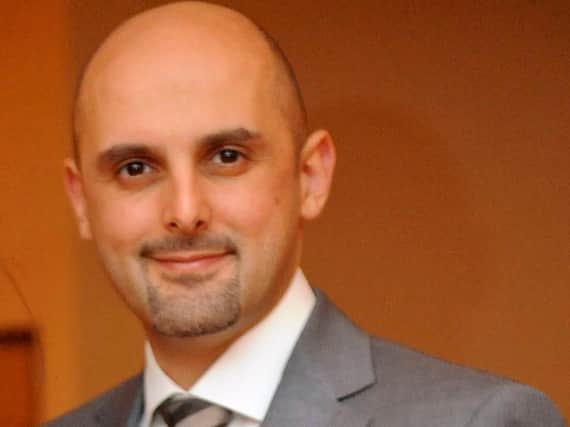Column: Look out for the symptoms of prostate cancer


If you are having a problem with your ‘waterworks’, says Mr Ammar Alanbuki, consultant urological surgeon at The Montefiore Hospital, then seek medical advice as soon as possible.
Are you going to the toilet more frequently, struggle to start and/or finish doing a wee or getting up in the night several times? Then you might have a problem with your prostate.
Advertisement
Hide AdAdvertisement
Hide AdAlthough you might be worrying about cancer, it is more likely to be a benign (non-cancerous) enlargement of the prostate which affects one in three men in their 50s. The enlarged prostate presses on and blocks the urethra, causing bothersome urinary symptoms.
Lifestyle changes such as reducing the amount of liquid consumed before bedtime and avoiding alcohol and caffeinated drinks can help. If symptoms continue, medication will be prescribed for up to a year, but after that, surgery may be necessary. This could involve removal of part of the prostate, or using a new technique called Urolift which lifts or holds the enlarged prostate tissue out of the way so it no longer blocks the urethra.
If you are having problems with your ‘waterworks’, pain or a family history of prostate cancer, see your GP.
As well as a rectal examination to see if the prostate gland is enlarged, a blood sample will be taken to test for prostate specific antigen (PSA) levels.
Advertisement
Hide AdAdvertisement
Hide AdDon’t panic if your first PSA test is raised – of those men with a raised PSA level, only 30% are likely to have prostate cancer.
And a diagnosis of prostate cancer doesn’t immediately need treatment or an operation. In recent years, urologists have adopted an ` active surveillance’ approach to men who have a localised, non-aggressive prostate cancer – that is, cancer within the prostate gland itself. This avoids invasive treatments which can damage sex life and cause incontinence.
Men on an active surveillance programme are monitored closely with blood tests, repeat scans and sometimes repeat biopsies to ensure it is safe to continue this approach.
If the cancer is localised but aggressive, or has grown during active surveillance, you will be offered treatment such as surgery or radiotherapy.
Advertisement
Hide AdAdvertisement
Hide AdFor cancer that has gone beyond the prostate gland, there is a range of treatments from hormone therapy to painkillers to enable the patient to continue to lead a normal life.
Symptoms of a prostate problem include: - needing to urinate more often than usual, including at night- difficulty starting to urinate- straining or taking a long time to finish urinating- a weak flow when you urinate; a feeling that you’re not emptying your bladder fully- needing to rush to the toilet – sometimes leaking before you get there- dribbling urine after you finish.
To mark the end of Prostate Cancer Awareness Month, Mr Ammar Alanbuki will be holding free 10-minute consultations during his clinic on Tuesday, November 28 at The Montefiore Hospital in Hove. To book your 10 minute appointment, call 01273 828 148 or visit: www.themontefiorehospital.co.uk